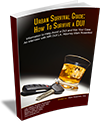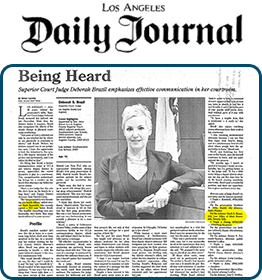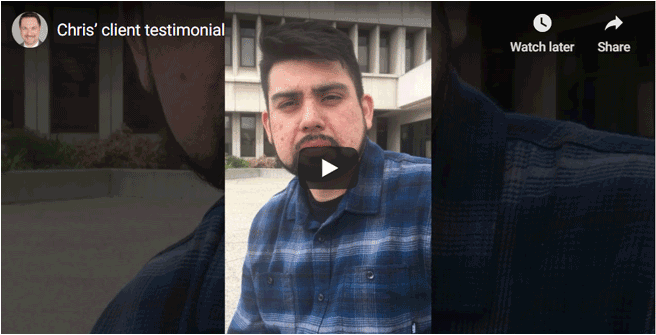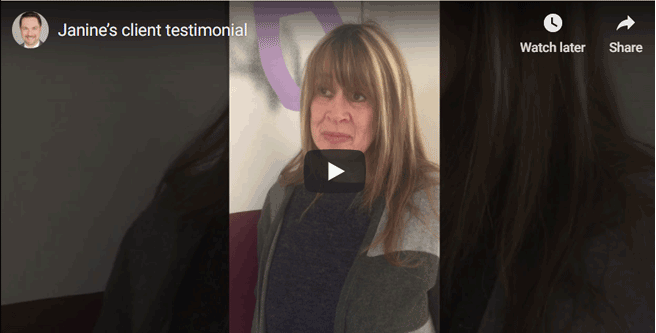In California, a driving under the influence conviction would stay on the person’s record for a minimum of 10 years, although it would also be important to look at what records were being considered. A Department of Motor Vehicles’ Administrative Action would go along with a driving under the influence case, and there would be a reported record if there was a conviction.
The DUI arrest and conviction would show up forever to anyone who ran a full rap sheet or a full Department of Motor Vehicles printout, meaning that the DUI could be used against them, and since it would be mandatory for a DUI that was less than 10 years old to be used as a prior, it would result in increased penalties and punishments if the person got a second DUI within 10 years.
Would It Be Possible to Have a DUI Conviction Expunged from One’s Record?
It would be possible for the person to have a DUI expunged from their record. This would be a good thing in many situations, while in other situations it would not make too much of a difference. Expunging a matter from a criminal record could be great as far as future employment and keeping the record as clean as possible, although the person would usually end up with an administrative action or a court conviction showing up on the Department of Motor Vehicles’ record which would be almost impossible to remove.
There would definitely be some benefits to doing an expungement and getting a DUI off the record for at least some purposes. A DUI will stay on the record for a minimum of 10 years as a priorable offense but within that period of time, the person would still be able to file paperwork to get it expunged.
If they were successful in getting it expunged for many purposes such as most job purposes, then the person could honestly answer “no” to the question regarding whether they had ever been arrested or convicted of a DUI. Of course for many government jobs, the person would need to disclose the fact they were arrested and/or convicted but that the matter had been expunged. For a regular employment, the person would be able to say they had never even been arrested if the matter had been successfully expunged.
It would be a different issue regarding when the person would be able to file for expungement. The minimum probation on a DUI would be for three years, so somebody who had been placed on probation would be able to move for an expungement if they were able to terminate the probation period early. Otherwise, they would have to wait until the probation period was over and then move for the expungement. This may take anywhere from three to five years, depending on what had happened with that particular case.
Can Police Officers Stay Outside a Bar or a Night Club and Target People Who Were Leaving?
A police officer would need justification to come into contact with a driver or a citizen. Sometimes police officers just have friendly conversations with people walking on the street or getting into their car, and that may be outside of a restaurant. If it was a consensual encounter and the person agreed to talk to the police, then there would be no problem for the police to talk to them. DUI taskforces or police departments often put officers in an area that is densely populated or has a high number of restaurants or bars so they can wait to see who leaves the restaurant and then follow them.
It would not be a reason to pull someone over just because they walked out of the restaurant or a bar and got into the car and drove, unless the officer had more information that they could articulate to prove they saw something suspicious.
If the officer saw someone come out of the bar and that person seemed to be stumbling or having trouble getting their keys, opening the car and getting it started, then there may be a reason to stop for a welfare check or to investigate further. In this case there would be a reasonable suspicion of something, although the officers would need more than just the person leaving a club to be able to pull them over. Any vehicle code violation would work.
We often see people use valet service for their car when they park at a restaurant or a club, and the valet would turn the lights off, park the car and when they bring the car back, the headlights would still be off. The person would get into the car and start to drive, and it may be a couple of seconds before they realized their headlights were off, but the police officers parked across the street would have seen the person driving without their headlights on so they would have probable cause to make a stop for the vehicle code violation regarding the headlights at night, and that may turn into a full-blown DUI investigation.
A police officer could sit and wait for any particular crime to occur in their presence. They may even follow a car, because there would be nothing to stop them from seeing someone leave a parking lot and then following them until a vehicle code violation did occur. Police officers may pull someone over for things such as not wearing a seatbelt, not signaling, or any justification they could find to stop the person. At 1 o’clock or 3 o’clock in the morning, they would know there was a very high likelihood that it could turn into a DUI investigation after they stopped someone for just failing to use a turn signal.
For more information on Expunging a DUI, a free initial consultation is your next best step. Get the information and legal answers you’re seeking by calling (310) 424-3145 today.






 Personal Attention
Personal Attention Every criminal case is unique and no attorney can guarantee the outcome of a case. The information on this site is legal advertising and for general information only. Using this site, requesting books, information, consultations or communicating with Attorney Rosenfeld through its site does not form an attorney/client relationship.
Every criminal case is unique and no attorney can guarantee the outcome of a case. The information on this site is legal advertising and for general information only. Using this site, requesting books, information, consultations or communicating with Attorney Rosenfeld through its site does not form an attorney/client relationship.








